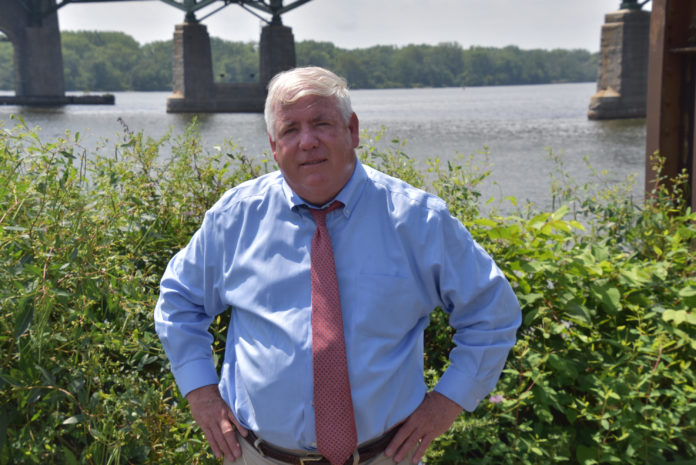Legislation sponsored by Councilman Mike Driscoll cracking down on illegal street racing and so-called “boom parties” was signed into law by Mayor Jim Kenney. The proposed ordinance subjects violators to a $2,000 fine or the seizure of the vehicle.
“Philadelphians will not tolerate those who menace our city by engaging in illegal street racing or who play music at concert-level volumes,” Driscoll said. “I thank my fellow council members and the mayor for their support of providing police and other enforcement officers with another mechanism by which we can stop individuals from endangering others or illegally turning a public space into a concert venue.”
The ordinance, which took effect immediately, combined two separate bills both introduced by Driscoll. One of those original proposals was introduced in June in the aftermath of the death of an 18-year-old allegedly engaged in illegal racing on I-95. It adds the term “drifting” to the city’s traffic code, defining it as any intentional act of steering a vehicle in a circle where the rear wheel or wheels lose traction and create a controlled skid sideways. The new definition also covers “doughtnuts” and “spin-outs.”
“Illegal street racing is inherently dangerous and irresponsible,” Driscoll said. “The potential for the loss of life with drifting or similar activities is enormous. As elected officials we must do all in our power to provide a city in which to safely live and work.”
The second proposal was introduced in May. It was aimed at “boom parties,” gatherings where cars equipped with massive speakers blast music with vibrations often shaking nearby homes. It would impose strict measures on vehicles that amplify sound heard at a distance greater than 100 feet from the vehicle.
“Residents along the river have endured the excessive noise at all hours of the day and night for long enough,” Driscoll said. “It’s a problem that has escalated in recent years and seriously detracts from the quality of life for residents.”
Violators of the ordinance face a $2,000 penalty and risk forfeiture of the vehicle. The bill authorizes the Philadelphia Police Department to issue violation notices. The PPD may also seize a vehicle for probable cause. Seized vehicles will be stored by PPD until final adjudication of the offense. If forfeiture is granted to the city, the PPD will have the authority to dispose of the vehicle. Individuals who claim their vehicle was wrongfully seized may recover it through an expedited hearing. This includes an owner who did not know and could not reasonably have known that the vehicle would be used in violation of the ordinance. Forfeiture is also possible when a vehicle owner fails to contest the citation or pay the associated fine within eight days of its issuance.
Driscoll said there are anecdotal reports that incidents of street racing and boom parties decreased since the measure was passed by Council in June.
“I’m very grateful to my colleague and the bill’s co-sponsor, Councilmember Mark Squilla, for his important support of this measure as well as those of the rest of Council,” Driscoll said. “Protecting the quality of life for those who live or work in Philadelphia and those who want to take advantage of all that our city has to offer requires concrete action. The bill’s unanimous passage by Council and its approval by the mayor signals that Philadelphia means business and we will stop those intent on engaging in illegal activity.” ••





